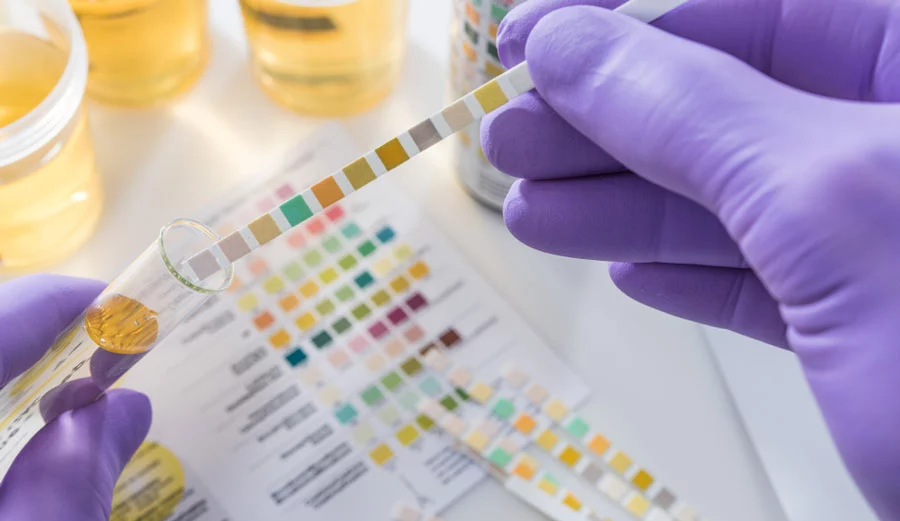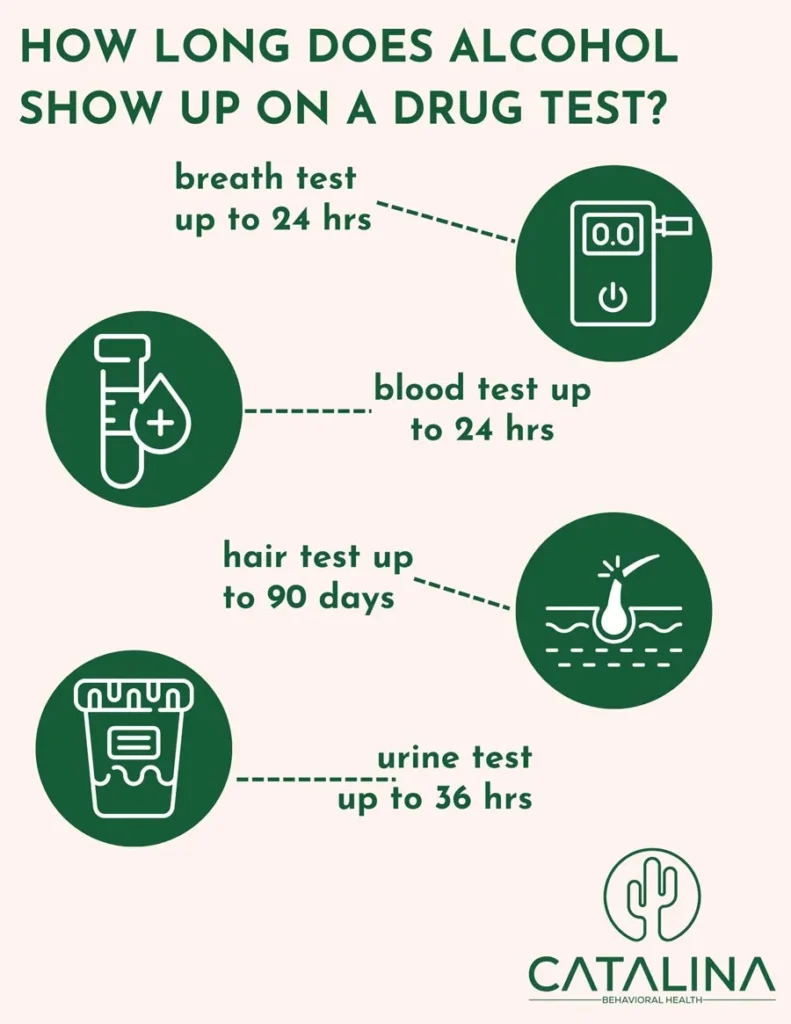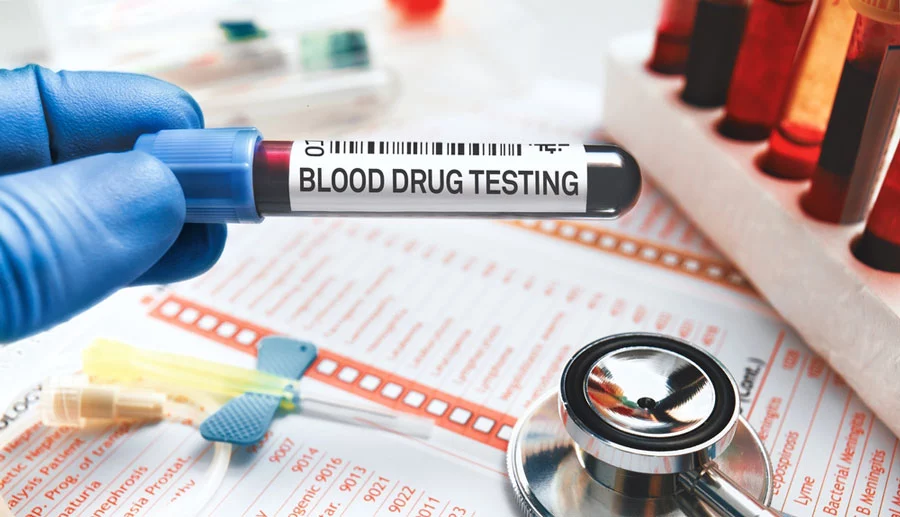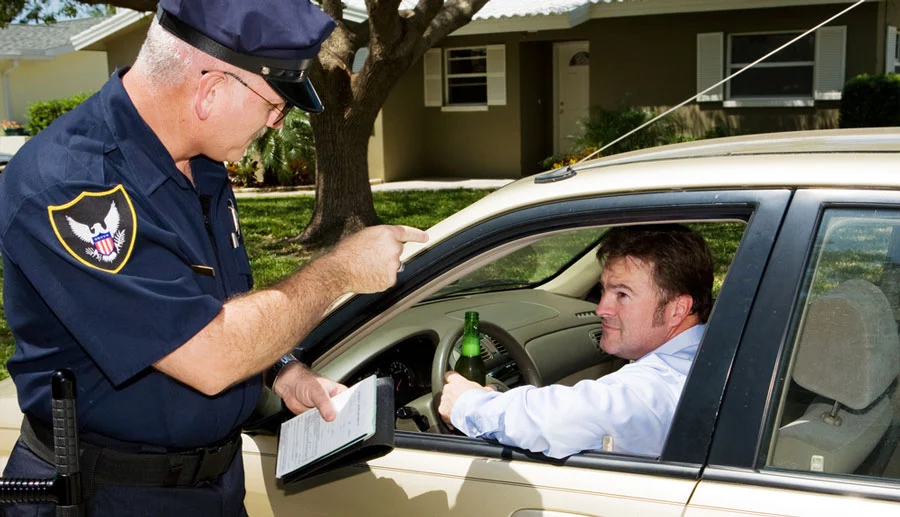Get Informed on Alcohol Detection During Drug Testing
Does alcohol show up on a drug test? This is exactly what we’re going to get into in this article. By the end, you’ll know everything you need to know about alcohol on drug tests.
If you are reading this, it is possible you have an unhealthy relationship with alcohol or drugs. Often, someone has a mental health disorder or life problem that they cannot get over and leads them to drink alcohol excessively.
If you would like help with this, keep reading and contact Catalina Behavioral Health at any time to get more information on our programs that support recovery from alcohol.
Alcohol Test Worries: Another Reason to Embrace Sobriety
Drug tests are an important part of many workplaces, court orders, and other situations. So it’s not surprising that people want to know if alcohol will show up in a drug test. The answer is yes, but the details depend on how recently you’ve been drinking and what kind of drug test is being used.
Let’s start with the basics: Alcohol doesn’t always show up directly on a drug test, only on blood drug tests. That’s because most drug screenings use urine or saliva samples – neither of which contains alcohol itself. However, your body does break down alcohol into compounds called metabolites, and these can be detected in your sample for several hours after drinking.
If your sample indicates the presence of alcohol metabolites, it can mean that you have been drinking recently. In fact, the longer after your last drink that you take the test, the lower your results will be. So if you’ve had a few drinks in the past 24 hours and then take a drug test, chances are it’s going to come back positive.
Get Options for Alcohol Detox and Rehab Now!
How Long Does Alcohol Stay In Your System?
Wanting to know how long does alcohol stay in your system? If you’re wondering if you will pass a test following alcohol use, the better question might be: how long is alcohol detected in your system? Keep reading to find out the length of time alcohol detection occurs from various tests.
Breath Tests
Breath tests are the most common way for law enforcement to test for alcohol and they can detect it up to 24 hours after consumption. So if you had a beer at lunch and then went for a drive, it’s possible that you could still be over the legal limit. Within only a few hours your BAC will drop again, presuming you stop drinking and begin to detox from alcohol.
Urine Tests

Urine tests are probably the most common and they can detect alcohol for up to 12 to 36 hours after consumption. That means if you had a few too many drinks at your friend’s birthday party last night, there’s a chance it will still show up on your urine alcohol test the next day.
Blood Tests
How about how long does alcohol stay in your system for blood tests? Blood tests are a bit more accurate and can detect alcohol for up to 24 hours after consumption. So if you had a glass of wine at dinner last night and then get pulled over in the morning, chances are that the blood alcohol content still shows up on tests.
Hair Tests
Finally, hair follicle tests detect alcohol for up to 90 days after consumption. So if you go on a week-long bender and then get routine drug tests at work, alcohol can be detected in your system for a few months afterward. This number is not dependent on how fast you process alcohol, or how long you’ve been drinking regularly for.
More Information On Alcohol During Drug Testing

Now we’ve looked at how long alcohol can be detected in your system during a test, let’s now take a closer look at the various tests that you may encounter.
Breath Tests
Breath alcohol testing is an important way to measure the amount of alcohol ingested by a person. It’s also a great way to gauge if someone has been drinking too much and potentially putting themselves at risk, so take this seriously!
The most common breath tests are the breathalyzer test or the Intoxilyzer test. These tests measure a person’s breath for alcohol use and have been approved by the National Highway Traffic Safety Administration (NHTSA).
Breathalyzers and Testing for Alcohol
When taking a breath test, you will need to blow into the device until it reads that your breath is clear. The amount of alcohol in your breath will be measured and recorded, so make sure to follow instructions. Remember, it’s not a competition!
Also, keep in mind that even if you pass the breath test, it doesn’t mean you are completely safe from alcohol-related risks. A breath test only measures the amount of alcohol present at the time of testing, and it won’t tell you what might have happened in the past few hours.
Hair Tests for Detecting Alcohol
Hair tests are another type of test that can be used to detect alcohol consumption. With this kind of test, a sample of your hair is examined for alcohol metabolites. These metabolites can be detected in the hair shaft for up to three months after you’ve been drinking.
The good news is that most employers don’t use hair tests for alcohol detection. That’s because they’re expensive and can take up to a week to get results. The bad news is that court ordered rehab testing and Judges often use hair tests when deciding legal cases involving alcohol consumption. So if you’ve been drinking recently, you might want to watch out!
In general, the best way to pass a drug test for alcohol is to simply not drink. But if you do find yourself in a situation where you might have to take a drug test, the best thing to do is limit your drinking and give your body enough time to metabolize the alcohol before taking the test.
Blood Tests for Both Alcohol and Drugs

Blood tests are the most accurate drug tests to detect alcohol consumption. Unlike urine or saliva samples, blood samples contain actual alcohol molecules, which makes them more reliable for testing purposes. The downside is that they’re also more invasive and expensive than other types of drug test
Unlike other forms of drug tests, a blood test can measure your exact level of intoxication. This means that they are commonly used when law enforcement is investigating a possible DUI. So if you’ve recently been drinking and find yourself in a situation where you might have to take a blood test, it’s important, to be honest about how much you drank – otherwise, you could end up facing legal consequences.
Urine Sample Testing for Alcohol
Urine tests are the most common type of drug test for alcohol. With a urine test, your sample is examined for metabolites – compounds that your body produces when it processes alcohol. Because these metabolites can linger in your system for several hours after you’ve been drinking, a urine test is considered a fairly reliable indicator of recent alcohol consumption.
Remember that no drug test is 100% accurate – so even if you’ve been completely honest about your drinking habits, there’s still a chance that your urine test results could come back positive. That said, as long as you’re honest and limit your alcohol consumption, you should have nothing to worry about! Good luck!
Get Immediate Help and Find Sobriety Today!
Do False Positives Occur From Alcohol Drug Tests?
False positives are an unfortunate and uncomfortable reality when it comes to alcohol tests. A false positive during drug testing occurs when a test incorrectly registers a positive result for the presence of alcohol, despite no consumption by the individual being tested. In other words, you could be totally sober but still get flagged as having consumed alcohol — not exactly ideal.
So what causes false drug test positives? There are several potential culprits. One is the presence of certain over-the-counter medications, such as cough syrups or cold remedies that contain small amounts of alcohol. If you happen to be taking those, it can throw off a breathalyzer and result in a false positive reading.
Alcohol Byproducts and the Detection of Alcohol
Another common cause of false positives is fermentation. For example, if you’ve recently had a beer or a glass of wine and haven’t brushed your teeth since residual sugars on your breath can trigger a false positive. Also, certain foods like licorice contain alcohol, and that too could set off an alarm.
And if you’re feeling like the odds are stacked against you, unfortunately, there’s more. Some breathalyzers simply aren’t very accurate and could give a false positive even if you haven’t had anything to drink — making them about as reliable as using an Ouija board to predict the future.
If you ever get a false positive reading on an alcohol test, take a deep breath. Although it’s not ideal, there are ways to appeal the result and prove your innocence. Just remember: false positives don’t mean you were drinking — only that you got unlucky. Hey, at least you can joke about it later as long as the charges get dismissed!
How Much Alcohol Can Cause You To Lose Your Driving License?

If you’re a driver in the United States, you should know that drinking and driving is no joke. Although you may think that having one or two drinks won’t hurt anything, it could mean the loss of your license if you get caught.
In every state across the country, there are laws on how much alcohol you can have in your system before you get behind the wheel. Of course, no amount of alcohol is recommended if you’re going to be driving.
The legal limit for driving under the influence (DUI) varies by state but it’s usually around 0.08% blood-alcohol concentration (BAC). If you get pulled over and your BAC is above the legal limit, you can expect hefty fines, potential jail time, and the loss of your license.
If this has already happened to you or someone you care about, seeking alcohol treatment programs at Catalina can help avoid the worst of the legal consequences in Arizona.
Zero Tolerance: When Any Amount of Alcohol is Too Much
In some states, even a lower amount of alcohol in your system can result in a DUI charge. Some states also have “zero-tolerance” laws that allow officers to arrest you for driving with any amount of alcohol in your system if you’re under 21.
Remember that a DUI will stay on your record even after you serve your sentence and pay the fines. This can cause issues when trying to find employment or buy insurance, so it’s best to just avoid drinking and driving altogether.
It may be tempting, but trust us – you don’t want to lose your license over a few drinks. So don’t risk it; find a designated driver or call an Uber if you decide to have a night out on the town. It’s probably cheaper in the long run!
This all applies to using illegal drugs, too. If the police found that you are intoxicated, there is a risk that you will lose your license or worse.
Put Worries About Testing in Your Past!
Get Support and Overcome Alcohol at Catalina Today!
If you’re searching for whether alcohol shows up in a drug test, it is possible that you have an alcohol problem. When someone has alcohol addiction, the ramifications of their alcohol abuse keep adding up, until their world crumbles. Don’t let it get this far.
If you need help with your alcohol consumption or substance abuse, speak with Catalina Behavioral Health today and get options to support your sobriety, now!




